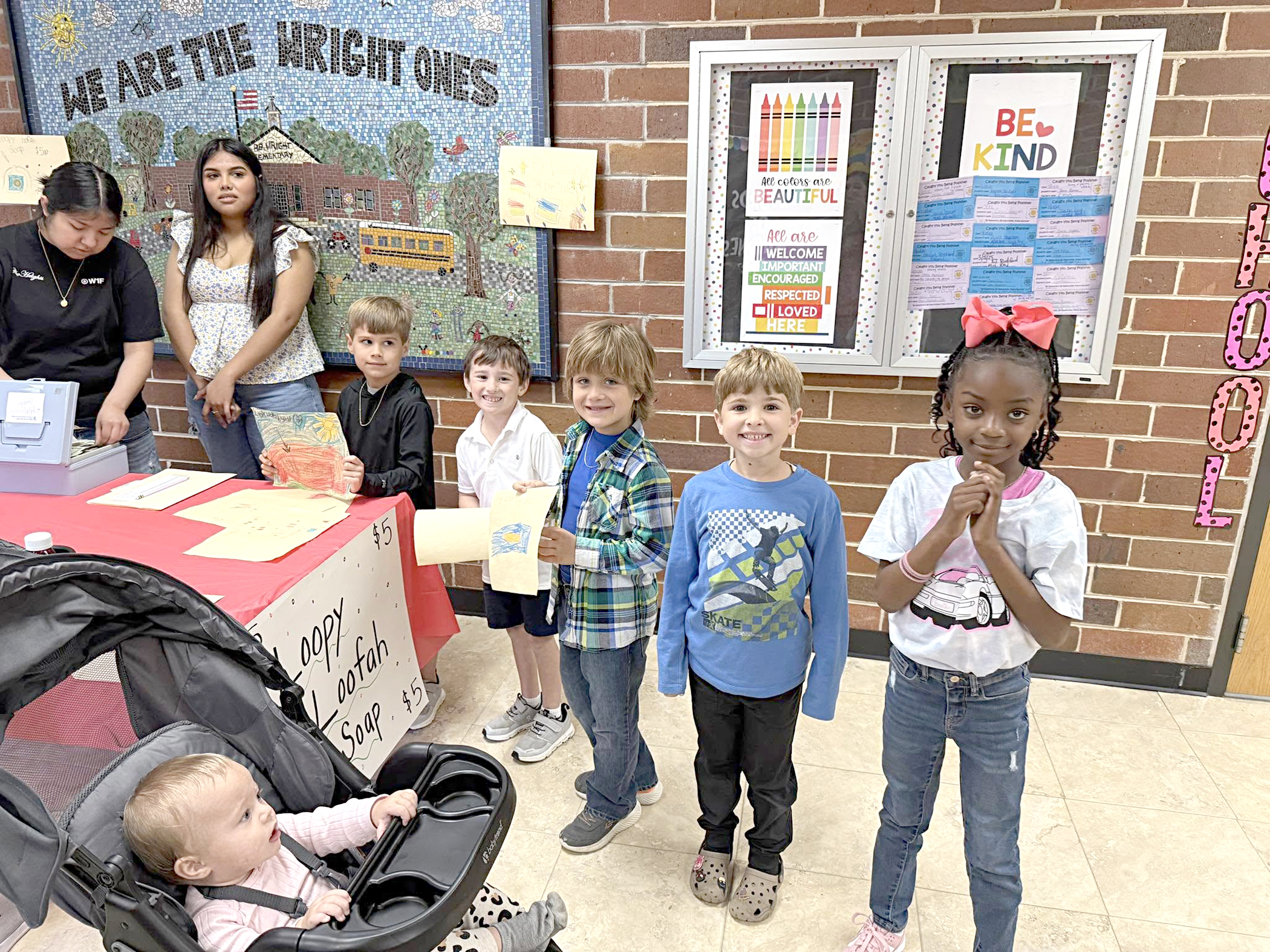
Show Off STEAM Learning
Georgia school uses Market Day to develop practical skills in business and financial literacy.
Topics: STEM, Curriculum and Instruction, Student Engagement
Educators at R.B. Wright Elementary School in Moultrie, Georgia, know that one day, its students will grow up to participate in the broader economy. To prepare them for those everyday realities and give kids a dose of the entrepreneurial spirit, the school holds an annual Market Day that connects learning to commerce.
Students engage in developmentally appropriate, curriculum-ready STEAM projects to develop products to sell. They set prices, market their goods, and manage sales. Parents help with product development and event staging, and the entire school community is invited to the school to show their support and buy student-made products.
This spring, pre-K students offered desk calendars featuring student artwork, and kindergartners sold “Cloud”—a homemade sensory modeling clay. First graders hawked loofah soap, and second graders pitched pressed-flower bookmarks. Third graders ran the only food concession, selling healthy snacks and smoothies, while fourth and fifth graders concentrated on gardening with vermicompost kits and rock sculptures. Products are priced from $1 to $10, making them accessible to students and attendees alike.
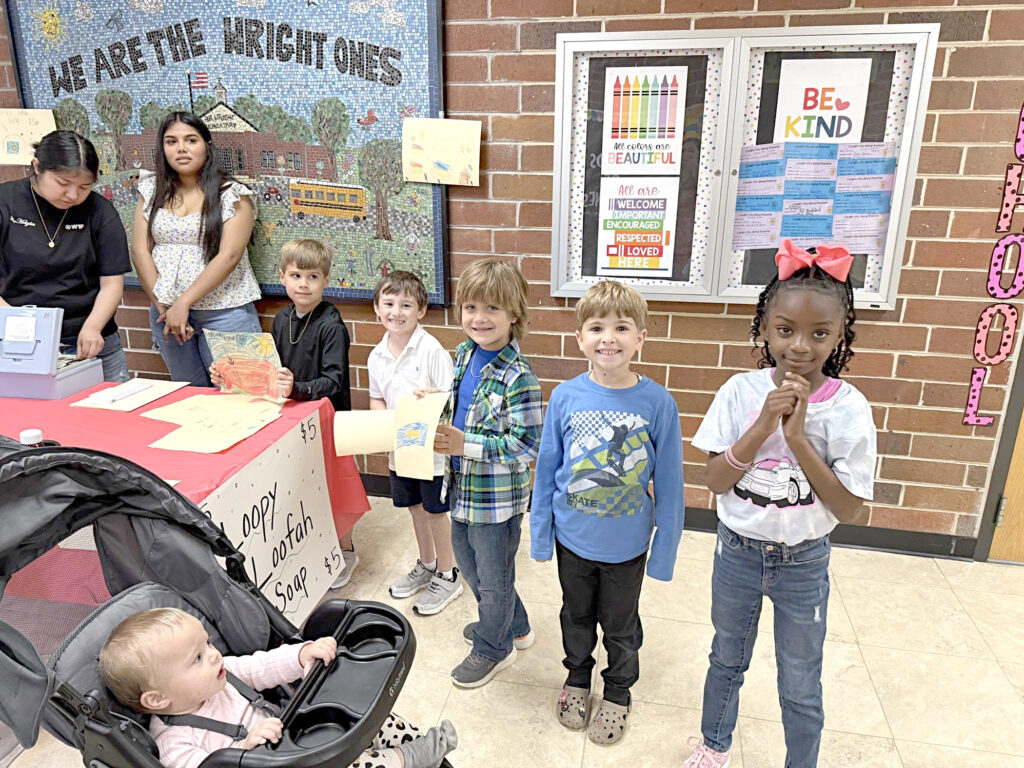
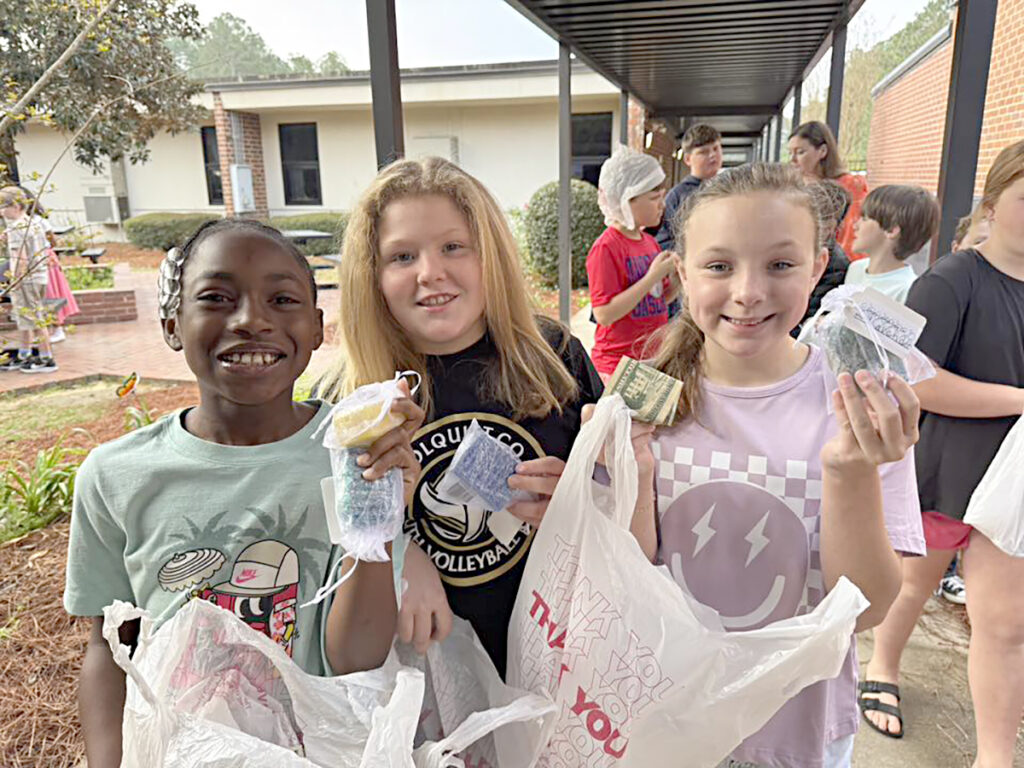
Applied Academics
The experience integrates academic learning and real-world applications to foster skills in business, communication, and community involvement. Along the way, students gain practical knowledge in areas such as:
- Entrepreneurship: learning the basics of starting and running a small business;
- Financial literacy: practicing budgeting, pricing, and managing money;
- Marketing: developing strategies to promote and sell products; and
- Communication: enhancing skills in customer interaction and teamwork.
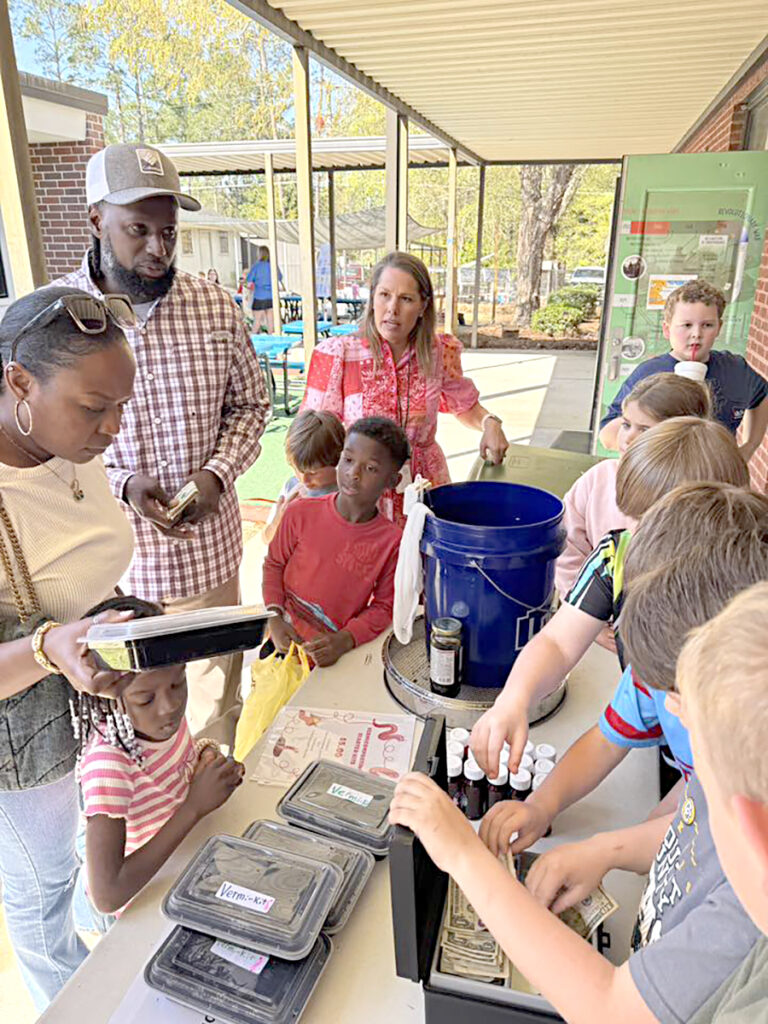
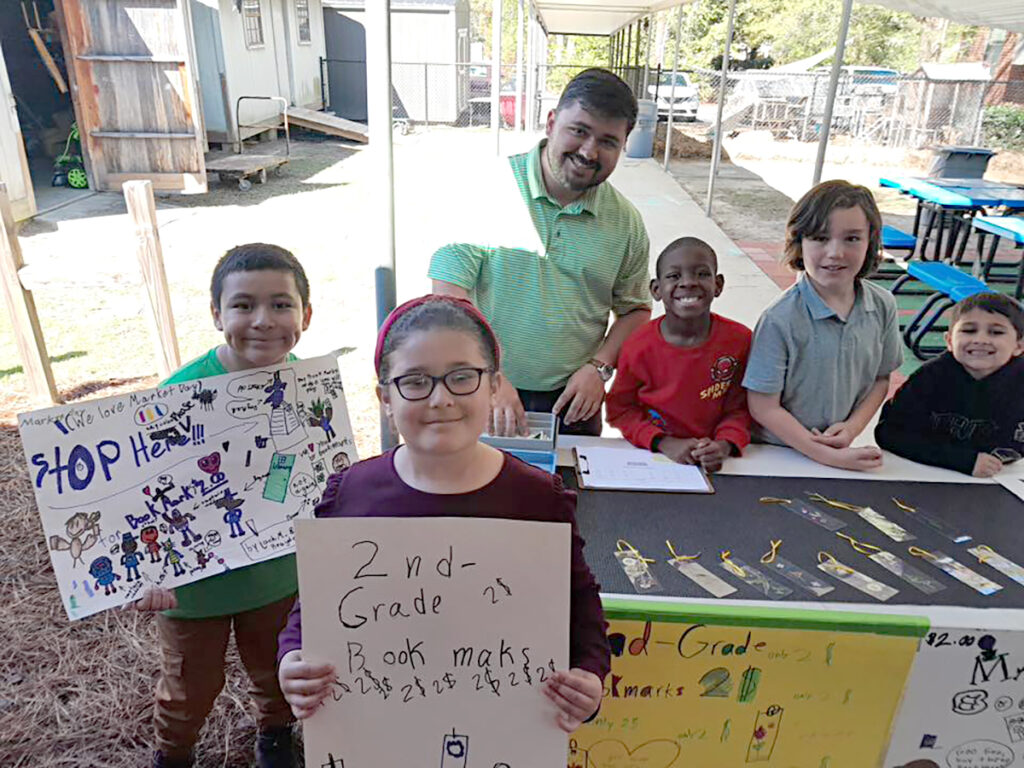
In addition to making education more meaningful by offering a tangible connection between classroom learning and real-world applications, Market Day helps students develop critical thinking and problem-solving skills and boosts confidence with a sense of accomplishment.
“Students enjoy the opportunity to express their creativity, make decisions, and see the impact of their efforts,” R.B. Wright assistant principal Ja’Net Smith says. Market Day fills kids with pride and excitement as they interact with peers, parents, and community members—and they get a voice in how the profits are spent.
Getting Started on a Sale
To create a program similar to Market Day, educators should first consider:
- Curriculum integration. Align the event with educational objectives.
- Resource allocation. Ensure that materials and space are available.
- Community involvement. Engage local businesses or organizations for support.
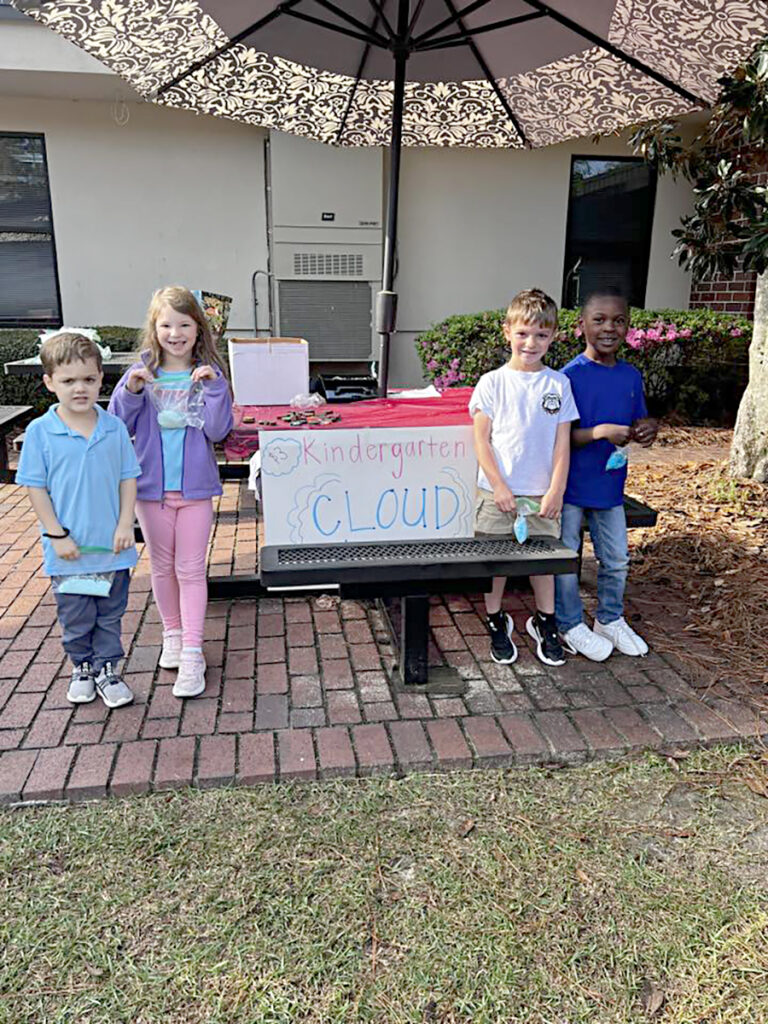
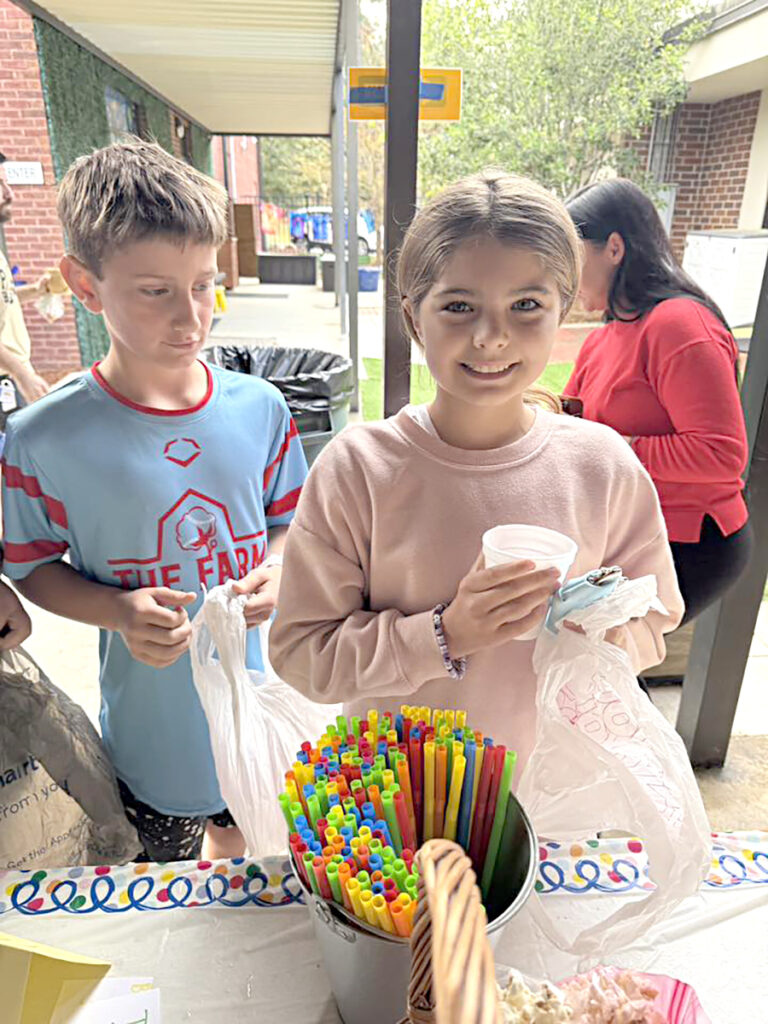
Safety and logistics. Organize the event to ensure a safe, efficient experience for all. Instructional leaders can collaborate with teachers to incorporate entrepreneurial concepts into the curriculum. Then, the school can set a date, secure a space and supplies, and promote the event in newsletters, social media, and local media outlets to attract volunteers and patrons. Involving staff, students, parents, and the community, Market Day gets everyone engaged.

